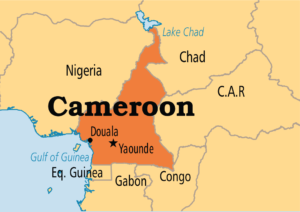
Geneva, Switzerland, June 10, 2020/ — The Norwegian Refugee Council today highlighted countries with neglected displacement crises, a list that included several countries where the International Committee of the Red Cross (ICRC) also has deep concerns for people uprooted by violence.
Patrick Youssef, ICRC’s incoming regional director for Africa, said: “Violence in many parts of Africa has not stopped because of COVID-19. In the Democratic Republic of Congo, Cameroon, Burkina Faso, Mali, and South Sudan, families continue to be forcibly uprooted, fueling already-dire displacement crises now complicated by COVID.
Our teams every day see the resilience of displaced families to carve out a living after losing everything to conflict, but now they face a crisis on top of a crisis. Physical distancing is impossible.
Running water, soap and medical care are often hard to come by. And the rising price effect of COVID hits empty stomachs hard. Violence and COVID-19 are a tragic combination for far too many.”
Democratic Republic of Congo
“In the Democratic Republic of the Congo, millions of people have to flee their home in search of safety. Numbers will keep rising as long as international humanitarian law is not fully respected.
We must ensure that internally displaced people are protected as much as possible from the effects of conflict and get access to shelter, hygiene, health, safety and nutrition,” said Rachel Bernhard, ICRC’s head of delegation in the DRC.
Abuses against civilians by weapon bearers on several sides remain widespread. Civilians are injured, killed, displaced, subjected to sexual violence, forcibly recruited to armed groups, and see their property destroyed.
Many are traumatized by the fighting. Millions have been internally displaced or fled the country for Angola, Burundi, Uganda and elsewhere, while others are deported or return to the DRC.
Cameroon
The humanitarian situation in the English-speaking region remains very worrying. Insecurity and violence limit people’s access to basic services such as health care and education and disrupt economic activities.
The violence also forces many to flee into the surrounding forest, move into other cities and towns in the country, or seek refuge abroad. They are often separated from their families, and lack resources to get by.
Burkina Faso
The number of people displaced by armed violence in Burkina Faso continues to rise, and last year was the fastest growing displacement crisis in Africa.
The city of Djibo in northern Burkina Faso saw its population more than double in 2019. The ICRC last month provided food to more than 51,000 displaced people in the north and relief items to 9,000 people in the country’s east and east-central.
Mali
Conflict and climate change continue to spark massive population movements both within Mali and across its borders. Just last week, attacks in central Mali left villages burned to the ground, herds and property looted, and families killed and forced to flee.
For displaced Malians, COVID-19 is an additional threat that comes on top of immediate threats such as gunshot wounds and blast injuries, all while life-saving health care is limited at best in remote areas.
South Sudan
An eruption of violence in Jonglei State in May left thousands of families displaced. Nearly 4 million South Sudanese remain displaced from their homes both within South Sudan and across its borders because of war and violence.
More than 200,000 of them live in overcrowded camps inside UN peacekeeping bases known as protection of civilian (PoC) sites. Just last month, the first COVID-19 cases were confirmed in the PoC sites in the capital Juba.
African Eye Report


